
Don't change the people, change the system: Scott McDonald, representative for the disabled, talks about head cinema during job interviews, prevention at the checkout, quiet hours in the supermarket, treating older employees with care - and about the fact that young people are (as always) better than their reputation.
one: Scott, for around one and a half years, you have been a kind of supreme guardian of the interests and needs of colleagues with severe disabilities as the general representative for employees with disabilities at REWE and PENNY Markt GmbH. What is the current situation?
Scott McDonald: Our inclusion agreement came into force in the middle of the coronavirus crisis. I took a look at this: What do we have, what do we want or need, how do we get there?
one: And...?
Scott McDonald: First of all, it's not about changing people, it's about changing the system. People are fine the way they are. Everyone has the legal right to be treated "normally" and respectfully. With or without an illness. The second point: severe disability is not the same as inclusion, but only a part of it. Inclusion means how society deals with severe disabilities, means the opportunities for participation of severely disabled people, means accessibility, means ways to attract new colleagues..

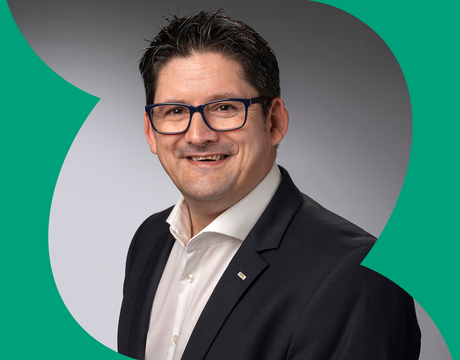 Scott McDonald
Scott McDonald
Scott McDonald, who was born in Scotland, has been loyal to REWE Region North, or more precisely to Lehrte Logistics, for 34 years. He has been involved there for a long time as a representative of the Severely Disabled Employees' Council (SBV). Since the beginning of 2023, McDonald has been Chairman of the General Representative Body for Severely Disabled Employees at REWE and PENNY Markt GmbH.
one: What ways can that be?
Scott McDonald: It's about equal opportunities for everyone. More courage to take risks, to give people with disabilities this opportunity. If it doesn't work, then at least we've tried. And let's be honest: even with people without disabilities, there's always a risk that a job won't work out.
one: What could the risks be?
Scott McDonald: Someone reveals their level of disability in the job interview. One or two senior managers are bound to start rattling around in their heads: Oh dear, he's bound to be absent a lot. Oh, I'll never be able to give her notice... That's rubbish. The legal conditions are initially the same for everyone. But what I mean is that you think about the negative consequences before the person has even signed an employment contract and been given a chance. But these are exceptions, most of us actually act differently. But of course there could always be more.
one: What consequences do you draw?
Scott McDonald: In the north, we have formed an inclusion team consisting of representatives from HR, the works council, representatives for severely disabled employees, health management, recruiting and occupational safety specialists, among others. We are a colourful group that collects and shares ideas together.


one: What ideas are these?
Scott McDonald: We are currently trialling three projects: Do Day, Shift Change and Silent Hour.
Do Day is a kind of Boys and Girls Day for prospective employees from workshops for disabled people (WfbM). They spend a day getting a taste of the company and looking over our shoulders. And maybe there is a future with us for one or the other..
Shift changes, on the other hand, are a kind of 1:1 change. I work in a sheltered workshop for a day and take the place of someone who goes to my workplace.
Silent hour is a concept from New Zealand to enable people with autism to go shopping. The store regularly switches everything down and dims the lights for a certain period of time. Many retailers already do this here, and I would like to offer it in a suitable shop. What's interesting is that this is not only well received by autistic or older customers, but also by our employees. They find it a great relief when everything is quiet for an hour one day a week, beeps off, no announcements, less light... We can hardly imagine what it's like to be exposed to these stimuli every day.
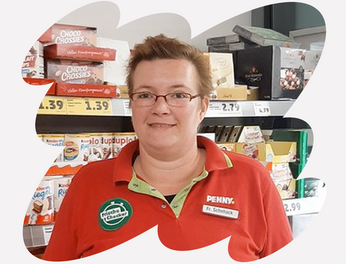 PENNY employee Christin Schehack is missing her left forearm. She was able to convince her initially sceptical boss during a trial run at the checkout.
PENNY employee Christin Schehack is missing her left forearm. She was able to convince her initially sceptical boss during a trial run at the checkout.
More about Christin Schehack and two other PENNY colleagues with a disability.
one: The concept not only benefits customers, but also employees ...
Scott McDonald: Our colleagues are the most important thing, they keep the whole thing alive, so we have to "nurture and care for them" as best we can. Especially as they get older, it's all about the how: how can we keep them happy, satisfied and, above all, healthy. How to keep them healthy so that they can stay as long as possible. The workload, for example in the markets or in logistics, is high and it has been proven that it is the older people who fall ill during their working life.
Don't misunderstand me, everyone should please stay healthy. But it's realistic that most people will fall ill at some point. Some sooner, others later. And my question as a representative of the severely disabled is: what ideas do we have to ensure that this happens as late as possible?
one: What ideas do we have?
Scott McDonald: We do a lot to keep our colleagues healthy. We just need to communicate this more. One example: whether in the office or at the checkout, people who sit for long periods need support. The height-adjustable desks are a great thing for the office. We are currently working on new checkout chairs and are looking at checkout stations. There won't be a perfect seat for everyone, but the aim is to minimise strain. This is just one example of what we offer in terms of health. But unfortunately, our colleagues don't realise a lot of things. For example, we have to point out over and over again how to sit correctly...


one: Those who are healthy can't imagine being ill?
Scott McDonald: Unfortunately, most of them only realise when the baby has already fallen twice into the well. I'm actually an absolute fan of prevention. Unfortunately, our day-to-day work in the representative body for severely disabled employees is more about countermeasures and less about prevention.
one: You would like to start earlier, that is, with your young colleagues?
Scott McDonald: Yes! And that works well. I have the impression that the younger generation expects more from life and therefore has a greater awareness of health issues. Older people often only realise what is good for them later in life and often as a result of illness. But the younger generation is more aware.
one: Finally, what advice would you give to a severely disabled applicant with a certain degree of disability? To disclose this in the job interview or not?
Scott McDonald: I can't give any advice here, but I would hope that at some point everyone will deal openly with a disability and that this question will no longer arise. That we are the company that gives everyone the chance they deserve. That I, as a person with a disability, am valued in the same way as someone without. I think we already do that most of the time. Basically, we're already pretty good when it comes to inclusion. But we still talk about it too quietly.

The tasks of the representative body for severely disabled employees
- Promoting the integration of severely disabled people
- Representing the interests of severely disabled people in the company
- Counselling and assistance for severely disabled people in the company


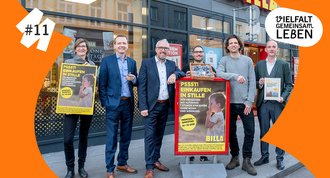
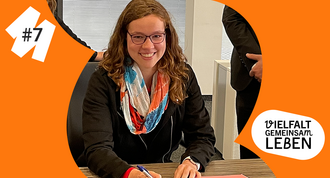
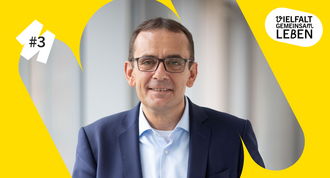
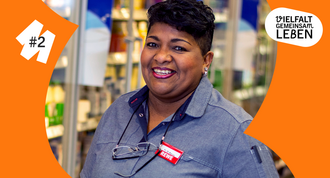
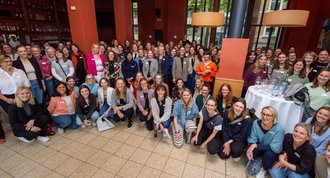

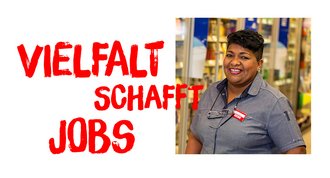
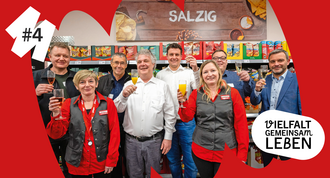


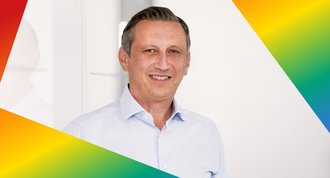
Both German and English comments appear here.
This colleague speaks from my heart and soul in equal measure. Dear Scott, thank you for your public statements.